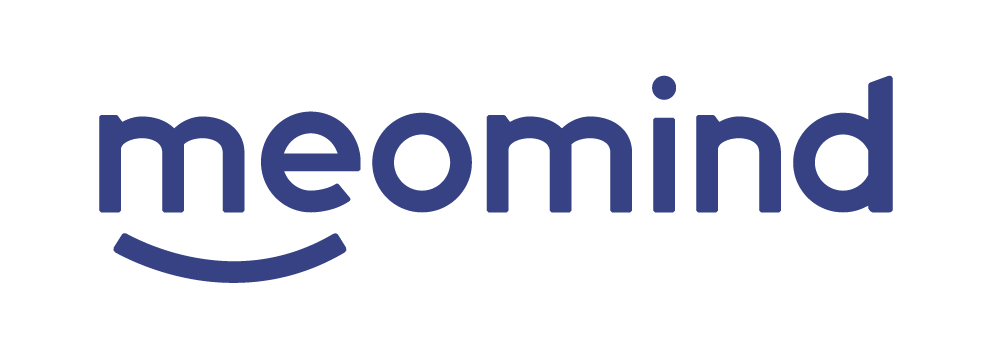Abstract
The global crisis in mental health is characterized by workforce shortages, inequitable access, and high costs, especially for minoritized populations. Digital therapeutics have arisen as one solution to the crisis. In this study, we investigated the effectiveness of listening to an online asynchronous therapy platform among 1,976 adults. Although more than 50,000 users have used the app, this is the first empirical research to examine its safety and efficacy. A multi-level longitudinal regression analysis was conducted on 1,976 adults and a subsample of higher scoring 1,232 “distressed” individuals, as assessed by a 4-item anxiety and depression measure (PHQ-2 + GAD-2). The analysis determined the relation between time listening to Meomind sessions and changes in the listeners’ mental health. A statistically significant and clinically meaningful relation was found between time listening to sessions and decreases in PHQ-2 + GAD-2 scores. Listening to 30 mins of therapy on Meomind led to a reduction of 0.15 and 0.54 in PHQ-2 + GAD-2 scores for the full and distressed samples, respectively. That represented, on average, a 12% decrease in self-reported distress by listening to only 60 minutes of self-selected sessions. There were no significant differences in symptom reduction by listener age, gender, or behavioral disorder. The limitations of this naturalistic research design are discussed, and the clinical implications for population-level mental health care are highlighted.
Background
In the US alone, 10 million adults lack access to necessary behavioral health services.1
The COVID-19 pandemic has exacerbated this crisis, leading to an increased prevalence of mental health disorders and shifting work environments. In 2020, over 40% of adults reported struggles with mental health or substance use, a significant increase compared to pre-pandemic prevalence.2
WHO estimates depression and anxiety cost the global economy $1 trillion each year in lost productivity3, underlining the critical role of mental health in wellbeing and productivity.
Digital therapeutics, such as Meomind, have emerged as one cost-effective alternative to conventional in-person psychotherapy. This is the first empirical research to examine the safety and efficacy of Meomind.
Methods & Participants
The Meomind application has been used by over 50,000 people. This analysis was conducted on 1,976 Meomind users and a subsample of higher scoring “distressed” individuals (N = 1232). The relationship between time spent in Meomind sessions and impact on mental health was analyzed using a multi-level regression analysis and the 4-item short anxiety and depression survey (PHQ-2 + GAD-2).
How Meomind Works
Meomind application provides 24×7 access to over 600 audio recorded psychotherapy sessions. Each session features a specific disorder or treatment goal and allows people to listen to clients experiencing similar struggles.

Table 1: Longitudinal Mixed-Effects Model

Results
- There was a statistically significant and clinically meaningful relationship between time spent listening to Meomind sessions and a decrease in PHQ-2 + GAD-2 scores (Table 1).
- Listening to 30 mins of self-selected therapy sessions on Meomind led to a reduction of 0.15 and 0.54 in PHQ-2 + GAD-2 scores for the full and distressed samples, respectively.
- Notably, a significantly greater impact was found for the distressed group than the full sample.
- There were no significant differences in impact by age or gender, and no significant differences in clinical effects among topic areas.
- Figure 1 presents graphically, a change in depression and anxiety (PHQ2 + GAD2) as a function of the minutes of sessions listened (multilevel longitudinal models).
- As shown there, there were no recorded cases of significant deterioration or harm in self-reported depression and anxiety as a result of listening to these focal sessions. Early indicators suggest that Meomind is well tolerated and safe.
Figure 1: User Depression & Anxiety as a Function of Meomind Dose

Discussion & Limitations
The results suggest that listening to therapy sessions on Meomind, especially for individuals identified as distressed, reduces anxiety and depression. Listening to only 60 minutes of sessions led to, on average, a 12% decrease in self-reported distress. There were no recorded instances of deterioration or harm. Meomind’s effectiveness across age and gender indicates that this platform can be widely beneficial.
Of course, listening to recorded therapy sessions does not offer as comprehensive or personalized care as a mental health practitioner. Also, the platform does not provide the full benefits of a therapeutic relationship. The naturalistic research design and the self-reported outcomes pose additional limitations.
Conclusion
Traditional therapies and providers cannot meet the global mental health crisis. The Meomind on-demand mental health application provides an innovative, cost-effective, and scalable solution. This research demonstrates Meomind’s convenient access, high engagement, safety, and positive outcomes.
Meomind provides a cost effective and accessible means to address mental health problems.
References
- Maxwell, J., Bourgoin, A., & Lindenfeld, Z. (2020, February 10). Battling The Mental Health Crisis Among The Underserved Through State Medicaid Reforms.
- Czeisler MÉ , Lane RI, Petrosky E, et al. Mental Health, Substance Use, and Suicidal Ideation During the COVID-19 Pandemic — United States, June 24–30, 2020. MMWR Morb Mortal Wkly Rep 2020;69:1049–1057.
- World Health Organization. (n.d.-a). Mental health at work. World Health Organization.

